Congratulations to Sedentary Behavior Research Network Award Winners!
The Sedentary Behaviour Research Network (SBRN) is pleased to introduce the SBRN Annual Award winners in the following categories:
SBRN Research Leadership Award
The SBRN Research Leadership Award is an annual award designed to honor excellence in research and/or innovative/creative scholarly activity in the field of sedentary behaviour. Qualified nominees are researchers/scholars whose research and scholarly impact on our understanding of sedentary behaviour has provided exceptional insight and impact. Nominees should also demonstrate a commitment to knowledge translation and mobilization of their research.
2025 Winner – Stuart Biddle

Dr. Stuart Biddle
Professor (Physical Activity and Health)
Centre for Health Research (Operations)
University of Southern Queensland
Australia
Stuart Biddle is a research professor in the Centre for Health Research at the University of Southern Queensland, Australia. He spent 16 years at Loughborough University, UK, and was Chair of the School of Sport & Exercise Sciences, 2001-2007. His current research is on sedentary behaviour and physical activity behaviour change, as well as mental health. His first grant to study sedentary behaviour was awarded by the British Heart Foundation in 2001. He is ranked in the top 20 all-time worldwide for career-long citation impact in ‘sport sciences’ and is a Clarivate Highly Cited researcher.
Stuart has been senior author of the book ‘Psychology of Physical Activity’ for over 30 years, with the 4th edition published by Routledge in 2021. He has been involved in the production of physical activity and sedentary behaviour guidelines for Australia, Canada, UK, and WHO. Stuart has Honorary Doctorates from the Norwegian School of Sport Sciences and the University of Thessaly, Greece.
2024 Winner – David Dunstan

Dr. David Dunstan
Professor
Head of Baker-Deakin Department of Lifestyle and Diabetes
Deakin University
Australia
Professor David Dunstan heads the Physical Activity laboratory at the Baker Heart and Diabetes Institute and the Baker-Deakin Department of Lifestyle and Diabetes within the Institute for Physical Activity and Nutrition at Deakin University in Melbourne Australia. He has been supported by external research fellowships for 16 years and has been a Chief Investigator on 18 nationally funded studies of approximately $17 million and 11 international studies from the UK, USA, Sweden and Finland of more than US$20 million. The outcomes of his clinical studies underpin recommendations on sedentary behaviour in global (AUS, USA, WHO) public health guidelines and American Diabetes Association guidelines. His policy impacts are acknowledged in 180 documents across 25 countries. Industry adoption includes the identification of ‘too much sitting’ as an occupational health and safety issue and enhanced sophistication of mass-market consumer wearables in tracking interruptions to sitting time. Dr. Dunstan’s work has had an outstanding impact on sedentary behaviour research and policy, and he is a deserving recipient of this award!
2023 Winner – Dr. Genevieve N. Healy
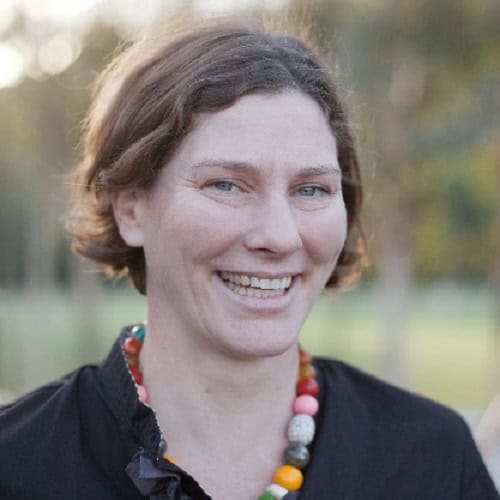
Dr. Genevieve N. Healy
Principal Research Fellow
MRFF Emerging Leadership Fellow
School of Human Movement and Nutrition Sciences
University of Queensland
Australia
Dr. Healy is a leader in the field of sedentary behaviour and has published several seminal papers. In particular, several of her original research papers and reviews published in the late 2000’s helped to establish sedentary behaviour as a risk factor that was separate and distinct from physical inactivity. Her 2008 paper in Diabetes Care was the first to identify a possible health benefit of breaking up prolonged sedentary behaviour; a finding that has spawned numerous follow-up studies and been incorporated into public health recommendations in several countries. Dr. Healy has over 250 publications with her work on sedentary behaviour spanning across the behavioural epidemiology framework, from associations to measurement development, to mechanisms, interventions and translation into policy and practice. She has a H-index of 79 (Google Scholar) and has been named a Clarivate Highly Cited Researcher for the past seven years, with their work cited in 15 patents and over 80 policy documents. Dr. Healy has been awarded multiple grants from both government and industry for her work in sedentary behaviour, including international grants with the US, UK and Canada. She leads an internationally recognised program of workplace intervention research to support desk workers to sit less and move more. This includes the online BeUpstanding program, which has been taken up by over 1200 workplaces (88,000 staff exposed to the program) to date. Dr. Healy’s work has had an outstanding impact on sedentary behaviour research and policy, and she is a deserving recipient of this award!
2022 Winner – Dr. Travis Saunders

Dr. Travis Saunders
Associate Professor
University of Prince Edward Island
Canada
Dr. Travis Saunders is an Associate Professor in Applied Human Sciences at the University of Prince Edward Island. His primary research program focuses on the heath impact of sedentary behaviour (e.g. sitting, and activities done while sitting) in both children and adults. In order to better understand the health impact of sedentary behaviour he employs a variety of techniques ranging from lab-based interventions to population-level epidemiological studies and systematic reviews, as evidenced by his >75 peer-reviewed publications. He co-authored Canada’s 24-Hour Movement Guidelines for School-Aged Children and Youth and was the sedentary behaviour content expert for Canada’s 24-Hour Movement Guidelines for Adults, both world firsts. No one has been more involved than Dr. Saunders in the creation, advancement, promotion and impact of the Sedentary Behaviour Research Network. He is a co-founder of SBRN; wrote the first post for the SBRN website in 2011; presented on SBRN at the ISPAH Congress in Sydney Australia in 2012; was an Executive Committee member and co-author of the SBRN Terminology Consensus Project; co-authored the published commentary supporting new Canadian 24-Hour Movement Guidelines; and was Chair for newly released International School-Related Sedentary Behaviour Recommendations.
2021 Winner – Dr. Jo Salmon

Dr. Jo Salmon
Director of the Institute for Physical Activity and Nutrition
Deakin University
Australia
Dr. Jo Salmon has made a series of outstanding research contributions, including many of the key findings on children’s sedentary behaviour. Her scientific leadership has been outstanding and effective through her long-standing executive-level contributions to the International Society for Behavioral Nurition and Physical Activity (ISBNPA), and is the Founding President of the Australasian Society for Physical Activity. The publication of her doctoral studies set the scientific and public health scene for the sedentary behaviour field more broadly. Her 2000 paper showed TV time to be associated with higher average body mass measures, including in those identified as being highly physically active. This preceded Frank Hu’s also-seminal 2001 paper on relationships of TV time with type 2 diabetes incidence. Based on Scopus publication-number data, she is ranked second internationally for sedentary behaviour overall (with 167 papers), and second for children’s sedentary behaviour (116 papers). Salmon is an elected Fellow of the Australian Academy of Health and Medical Sciences (2018). Her recent research-grant success and publication productivity speak strongly to her leadership in the field. In the last 5 years, she has been Chief Investigator on 8 nationally competitive grants worth some $5.7 million. She currently holds two NHMRC partnership grants (CIA and CIC) and an Investigator Grant (Level 2). She has also been a named investigator on 5 internationally funded studies ($4 million), including from the U.S. National Institutes of Health. She has published 150 papers in the last 5 years (already cited 2,006 times). She has been recognised as a Thomson Reuters/Clarivate Highly Cited Researcher for the last six years. These numbers are impressive, but what is equally, if not more, impressive about Jo Salmon is the respect in which she is held internationally for the graciousness, generosity and skill that she has brought to capacity building in the sedentary behaviour research field.
2020 Winner – Dr. Neville Owen
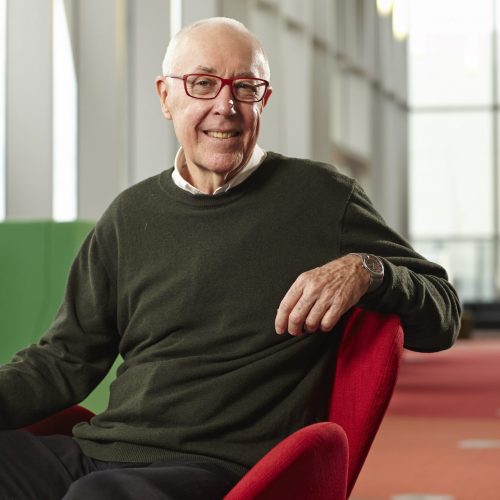
Dr. Neville Owen
Head, Behavioural Epidemiology Laboratory
NHMRC Senior Principal Research Fellow
Baker Heart and Diabetes Institute
Melbourne, Australia
Neville has contributed extensively to evidence-based approaches to chronic disease prevention, with original research and translational outcomes in documenting the consequences of too much sitting and investigations of how urban environments that are conducive to high volumes of sedentary behavior may compromise metabolic health. Specifically, his current program involves experimental and epidemiological analyses of underlying biological mechanisms and health consequences of sitting time, workplace and home-based intervention trials targeting sedentary behaviour reductions. He has published some 600 peer-reviewed papers and chapters, including in The Lancet, Circulation, Diabetes Care, Diabetologia, British Journal of Sports Medicine, and Obesity Reviews. He has been listed in the Thomson Reuters “World’s Most Influential Minds”, Social Sciences in 2015 and 2016, and in the 2017, 2018 and 2019 Clarivate Highly Cited Researchers. Neville co-edited the definitive volume on sedentary behaviour and health for the world’s leading publisher in physical activity and health field (Zhu W., Owen N., Sedentary Behaviour and Health: Concepts, Evidence, Assessment and Intervention. Human Kinetics, Urbana-Champaign, Illinois; 2017; 27 chapters) and gave the opening Keynote at the first Sedentary Behavior and Health Conference at the University of Illinois in 2015. He was also invited by the American College of Sports Medicine in 2009 to provide the President’s Lecture where he gave an enlightening presentation on the topic “The Science of Sedentary Behaviour: Too Much Sitting and Too Little Exercise” which he subsequently led as an invited review (Ex Sport Sci Rev) that now has 2,213 citations. Most recently, he led the highly successful Centre of Research Excellence: Sitting Time and Chronic Disease Prevention – Measurement, Mechanisms and Interventions. The extensive achievements have now been documented in the recently published invited review for Annual Reviews of Public Health, titled “Sedentary Behavior and Public Health: Integrating the Evidence and Identifying Potential Solutions”.
SBRN Practice Leadership Award
The SBRN Practice Leadership Award is an annual award designed to recognize and celebrate an individual, group or organization who has demonstrated exceptional and sustained leadership for raising attention towards increasing trends in sedentary lifestyles and associated adverse effects of prolonged sedentary time while offering support/solutions to reduce/manage excessive sedentary time. Qualified nominees are individuals, groups or organizations who have demonstrated leadership in building awareness of the issues related to sedentary behaviours and sustained commitment towards evidence-based solutions, effective allocation of resources, knowledge translation, community engagement, and/or role-modelling (e.g., launching a comprehensive and evidence-based campaign).
2025 Winner – Fairplay

Fairplay
Not-for-profit Organization
Boston, MA, USA
Fairplay works to enhance children’s well-being by eliminating the exploitative and harmful business practices of marketers and Big Tech. We are the leading nonprofit organization committed to helping children thrive in an increasingly commercialized, screen-obsessed culture, and the only organization dedicated to ending marketing to children.
Fairplay is a truly independent voice for children – we do not accept donations from Big Tech or any corporation. No other organization our size stands up for kids the way we do. Since our founding by Dr. Susan Linn in 2000, Fairplay has grown from a small group of concerned parents, health professionals, and educators into a powerful force for children and families. Our unique approach helps put kids’ well-being first at home, in communities, and in corporate boardrooms.
Working closely with policymakers, health and child development experts, and our dedicated supporters, we’re bringing to life a new vision of childhood — one shaped by what’s best for kids, not what’s best for profits.
2024 Winner – Dr. Bai Li

Dr. Bai Li
Associate Professor (Centre for Exercise, Nutrition and Health Sciences)
Programme Director of MSc Nutrition, Physical Activity and Public Health
Programme Director of MRes Health & Wellbeing
University Theme Lead (City Futures), The Cabot Institute for the Environment
University of Bristol, UK
Dr. Bai Li embraces co-creation partnerships with policy makers around the world to advocate sustainable, systemic, policy-level actions to tackle leading global challenges including sedentary behaviour, obesity and undernutrition. Dr Li has co-authored with policy makers from 46 countries across Asia, Europe, America, Australia and Oceania. She has led large-scale global health research projects to generate high-quality evidence used by major international and national authorities such as World Health Organisation, the United Nations, World Obesity Federation, Asian Development Bank, and the State Council of China.
Dr. Li was the Principal Investigator for the ENERGISE natural experiment which used representative surveillance data from 100,000 Chinese children and adolescents to evaluate the impact of the world’s first nation-wide regulation aimed to improve digital, home and school environments of sedentary behaviour among pupils. The ENERGISE natural experiment found that pupils had reduced their total sedentary behaviour time by approximately 50 minutes per day and were 20% more likely to meet international daily screen time recommendations. The ENERGISE project provides much-needed and timely evidence supporting regulatory interventions targeting multiple settings and types of sedentary behaviour among children and adolescents. Dr Li has been invited to present the important findings to national governments and inter-governmental organisations. WHO Regional Office in Europe is supporting Dr Bai Li’s initiative to set up a new international research consortium to explore the political feasibility and public acceptability to implement regulatory interventions to reduce sedentary behaviour among children in European countries.
Moreover, Dr. Li actively engages with global media and the public to raise awareness of complex and societal drivers of the global crisis of sedentary behaviour.
Dr. Li’s work on the ENERGISE project in particular has had a groundbreaking impact on sedentary behaviour research, practice and policy, and she is a deserving recipient of this award!
2023 Winner – Erin Walker

Erin Walker
Specialist Physiotherapist
Older Peoples Services & Practice Development Physiotherapist
National Health Service (NHS) Greater Glasgow & Clyde
Scotland
Erin has been dedicated to changing culture around reducing deconditioning and sedentary behaviour in the clinical setting for over a decade. She has been a pivotal part of the Active Wards (Harvey and Cameron, 2021) Special Interest Group since its formation in 2018 and now leads the group. The purpose of this role is to work with the NHS Greater Glasgow & Clyde Practice Development Team to take our Active Ward Principles into our board-wide Care Assurance System (CAS) standards and ensure their 450 Physiotherapists are in the positions to lead this change in their local area. She had been working with the CAS team, but also working with other professional groups to ensure consistency of message across standards and guidance. This is largely due to Erin’s generosity and willingness to share her extensive clinical experience and innovative ideas. She has delivered training to multi-disciplinary teams of staff as part of health care workers inductions, falls training, development events, as well as part of national and international events. She has co-created a toolkit of resources, online training, an audit tool for staff and created branded marketing products, such as short animated videos to sell the message in a simple way. Erin published her first article in Agility 2022. She has been working hard to evaluate the outcomes as the project progresses and has completed a master’s module in Research Methods and SIFS (Scottish Improvement Foundation Skills) training in the past year to help her achieve this.
Twitter: @ErinW20physio #ActiveWards
2022 Not Awarded
2021 Winner – Dr. Stephanie Prince Ware

Dr. Stephanie Prince Ware
Research Scientist
Public Health Agency of Canada
Canada
Dr. Prince Ware is an innovative Public Health Agency of Canada (PHAC) research scientist. After a highly productive CIHR Health System Impact Fellowship with PHAC, she was appointed to a research scientist position within PHAC’s Centre for Surveillance and Applied Research. Dr. Prince Ware has been instrumental in advancing PHAC’s understanding of how sedentary behaviour distributes across the Canadian population, shaping PHAC’s ongoing approach to measuring and tracking sedentary behaviour, and informing programs and policies directed at improving the health of Canadians. Dr. Prince Ware has been influential in advancing PHAC’s work to develop sedentary behaviour survey content. She was able to support the actualization of findings from earlier work, providing expert advice in the development of new content for core national health surveys including the Canadian Community Health Survey, Canadian Health Measures Survey, and Canadian Health Survey of Children and Youth. Much of this work is in service to other researchers who can now use this survey content in their own research. In 2020, Dr. Prince Ware published an exhaustive paper examining trends in sedentary behaviour across Canada’s major national health surveys, going back as far as 1986. In the academic world, there is often a focus on the new and novel, but in government, there is often a need to look to well-established evidence to confidently inform policy, and to conduct research that supports the wider scientific community. Her work is so valuable to PHAC, and ultimately all Canadians, because she has a gift for looking at data and research literature from the perspective of the existing gaps in evidence-based policy. Additionally, she amplifies her own efforts, both by mentoring student researchers, but also by conducting research that sets the sedentary behaviour scientific community up for success.
2020 Winner – ParticipACTION
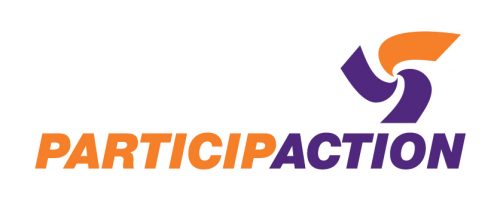
ParticipACTION
Not-for-Profit Organization
Toronto, Canada
ParticipACTION has a vision of “A Canada where physical activity is a vital part of everyday life.” Its mandate: “As Canada’s premier physical activity brand, ParticipACTION helps Canadians sit less and move more through innovative engagement initiatives and thought leadership.” ParticipACTION has been pursuing this vision and mandate since 1971 – approaching its 50th anniversary. When they first started, Canadians were struggling to achieve their physical activity goals. So, they showed them how 30-year-old Canadians were about as fit as 60-year-old Swedes. When the 1990’s rolled around, Hal and Joanne were there to offer easy ways to “Keep fit and have fun” through their iconic Body Break segments. Since 2007 ParticipACTION has spoken out about how our modern lives are leading to an inactivity crisis, fuelled by excessive sedentary behaviours. They have changed many Canadians’ minds about what it means to be active and the consequences of excessive sitting and screen time. They remain focussed on changing behaviour through a movement for more movement. They work with their many partners, which include sport, physical activity, recreation, organizations, government and corporate sponsors, to promote physical activity and discourage excessive sedentary behaviours, as a vital part of everyday life. They run many national campaigns and programs, including the ParticipACTION Report Card on Physical Activity for Children and Youth (and now one for adults as well). The latest 2018 Report Card can be found here. This knowledge translation and mobilization product has been instrumental in raising awareness of excessive sedentary behaviour, and especially screen time in Canada. The 2018 Report Card had a focus on brain health. ParticipACTION has been providing such leadership in Canada for nearly 50 years.
SBRN Student/Trainee Award
The SBRN Student/Trainee Award is intended to recognize promising students and/or young advocates/researchers/practitioners in the training phase of their career for their exemplary dedication, commitment, and contributions to the field of sedentary behaviour. Qualified nominees are students/trainees at any stage of training, including Undergraduate and Graduate students, Postdoctoral Fellows, and trainees in practice (e.g., occupational therapy, ergonomics), who have demonstrated significant involvement, initiative, and excellence by conducting innovative and impactful research across the spectrum of sedentary behaviour and/or successful knowledge translation into practice (e.g., innovative idea/approach).
2025 Winner – Madeline Shivgulam

Madeline Shivgulam
PhD Candidate
Dalhousie University
Moncton, NB, Canada
Madeline Shivgulam is a PhD in Health student at Dalhousie University. Originally from Toronto, Ontario, she completed her BSc and MSc in Kinesiology at Dalhousie. Based at the Centre de formation médicale du Nouveau-Brunswick in Moncton and affiliated with the Geriatric Medicine Research Unit in Halifax, her research focuses on how lifestyle behaviours, particularly physical activity and exercise, influence health outcomes in older adults across clinical and community settings. By examining factors such as physical activity, sedentary behaviour, and frailty, she aims to inform evidence-based interventions for healthcare and public health. Madeline is supervised by Dr. Myles O’Brien and Dr. Olga Theou.
2024 Winner – Dr. Isabel B. Rodrigues

Dr. Isabel B. Rodrigues
CIHR Postdoctoral Fellow
University of Manitoba
Canada
Dr. Rodrigues is a CIHR postdoctoral fellow at the University of Manitoba. She has 30 peer-reviewed publications (H-index 14), with over $400,000 in scholarships, and over $650,000 in grants ($75,000 as principal investigator). Her independent program of research focuses on co-developing and implementing multifactorial lifestyle interventions in older adults who are at high risk of falls and fractures. Dr. Rodrigues is passionate about working with older adults to meaningfully engage them in mobility research. She recently led the MAPS-B study at McMaster University, which focused on understanding context of sedentary behaviour in frail older adults. Her work on MAPS-B was recognized through a national television interview by Global News. Additionally, her work on sedentary behaviour has been recognized through the 2019 BMO Bank of Montreal Leadership Excellence Award and she has been interviewed twice by 100.7 CHIN FM for her development and implementation of the “Road to Wellness” program at the LUSO Canadian Charitable Society. The Road to Wellness program is a strategy to reduce sedentary behaviour among adults with disabilities by encouraging meaningful activities. The program established connections with local organizations such as YMCA, Hamilton Community Garden Network, and a local woodworking company where the LUSO participants could engage in sports, garden, and woodwork.
2023 Winner – Dr. Nicholas Oliver Corey Kuzik

Dr. Nicholas Oliver Corey Kuzik
Post-Doctoral Fellow
Healthy Active Living and Obesity (HALO) Research Group
Children’s Hospital of Eastern Ontario Research Institute
Canada
Dr. Kuzik is a leader in the field of sedentary behaviour. As a graduate student at the University of Alberta, Dr Kuzik led and/or contributed to several systematic reviews that directly informed the Canadian 24-Hour Movement Guidelines for the Early Years and for Children & Youth. Dr Kuzik was also part of the leadership team and led the systematic review that informed SBRN’s International Recommendations for School-Related Sedentary Behaviours; was the Research Manager and Lead Author of the 2022 ParticipACTION Report Card on Physical Activity for Children and Youth, which includes a focus on sedentary behaviour. In this role, Dr Kuzik led the incorporation of specific information related to equity deserving groups for each key outcome in the Report Card, and will continue with this role for the 2024 Report Card. These projects have all been extremely influential in summarizing the best available literature and to drive change related to sedentary behaviour both at home and at school. These projects also inform and promote policy approaches to increasing physical activity and reducing sedentary behaviour. Dr Kuzik has consistently demonstrated significant involvement, initiative, and excellence by conducting innovative and impactful research across the spectrum of sedentary behaviour and successful knowledge translation into practice.
2022 Winner – Dr. Scott Rollo

Dr. Scott Rollo
Health Promotion Specialist Canadian Forces Morale & Welfare Services at CFB Borden
Canada
&
Director of Research, Strategy and Content Development
GoGet.Fit
Canada
Dr. Scott Rollo has a PhD in Kinesiology from Western University with his training supported by many academic awards including Ontario Graduate Scholarships and a SSHRC Doctoral Fellowship. He just completed a postdoctoral fellowship position with the Healthy Active Living and Obesity Research Group (HALO) at the CHEO Research Institute and with the School of Epidemiology and Public Health, Faculty of Medicine at the University of Ottawa. Scott has 26 published, peer-reviewed manuscripts with half of those as first author, in addition to 4 published book chapters. He has made >20 national or international scholarly conference presentations. He participated as a member of the research and content development team for the 2020 and 2022 ParticipACTION Report Card on Physical Activity for Children and Youth and provides regular blogs for the Sedentary Behaviour Research Network. He co-authored the published commentary supporting new Canadian 24-Hour Movement Guidelines and was part of the leadership group and steering committee for the development of the International School-Related Sedentary Behaviour Recommendations. Scott is a peer-reviewer for a number of quality journals.
2021 Winner – Matthew Mclauglin

Matthew Mclaughlin (Tepi)
PhD Candidate
School of Medicine and Public Health
University of Newcastle
Hunter New England Population Health Research Group
Australia
Since joining in July 2017, Tepi has made a tremendous contribution to the reputation and track record of the Hunter New England Population Health Research Group in physical activity and sedentary behaviour through both scholarship and advocacy. Tepi led the Sedentary Behaviour Global Monitoring Initiative, a project adding sedentary behaviour metrics to the national physical activity Country Cards, produced by the Global Observatory for Physical Activity (GoPA!) for over 180 countries. Tepi also leads a large global team of 30 members of the International Society for Physical Activity and Health (ISPAH) to collate sedentary behaviour data. He established and maintained collaborations with the GoPA! and ISPAH to ensure data generated from the initiative was disseminated via the second set of GoPA! Country Cards, launched in 2021 – designed purposefully for country-level advocacy. Tepi also led a manuscript publishing this work in the International Journal of Behavioral Nutrition and Physical Activity and has a growing list of academic publications and conference presentations. As an early career academic, Tepi is career-minded, dedicated, and highly productive. He is an active member of grass-roots local physical activity advocacy groups, assumed leadership roles in developing and executing knowledge translation strategies for the promotion of physical activity as part of the National Centre of Implementation Science, and has independently developed a range of collaborations with key international institutions and societies involved in physical activity, sedentary behaviour and health. His research and advocacy have already had tangible impacts on physical activity policy and promotion.
2020 Winner – Ana Jéssica Pinto

Ana Jéssica Pinto
PhD student
Applied Physiology & Nutrition Research Group
University of Sao Paulo – Sao Paulo, SP – Brazil
Ana is a PhD student who shows great promise in the field of sedentary behaviour research and knowledge translation and already has 22 peer-reviewed publications, including her most-recent contribution “Combating physical inactivity during the COVID-19 pandemic” in Nature Reviews Rheumatology (IF = 18.5). Her ability to respond rapidly to the clinical and scientific context of the coronavirus pandemic and produce a commentary that is of importance for clinical practice and is strongly underpinned by the science of sedentary behaviour – from behavioral, biological, epidemiological and practice perspectives – is a compelling example of Ana’s high level of expertise and overall excellence. Ana has also led several innovative research studies that significantly contribute to the field of sedentary behaviour, particularly for those with rheumatoid arthritis – a serious disabling medical condition in which conventional approaches to exercise can be contraindicated and/or unfeasible. Her first two publications in 2016 identified the impact of sedentary time and issues pertaining to measurement of sedentary time in rheumatoid arthritis. She designed and published the protocol for: “A randomized controlled trial to reduce sedentary time in rheumatoid arthritis: protocol and rationale of the Take a STAND for Health study”. She has demonstrated scientific, clinical and public-health resourcefulness, and a capacity to collaborate with other scientific disciplines and clinicians to develop innovative and impactful research studies that will provide novel insights into the effects of reducing sedentary time in clinical populations. Her contributions in the area of rheumatoid arthritis are already setting her up to be a global leader in this field. Ana has conducted additional impactful work in her native language, Portuguese. Although those works do not have the same impact globally, they have informed policies and practices in her home country of Brazil.
2025
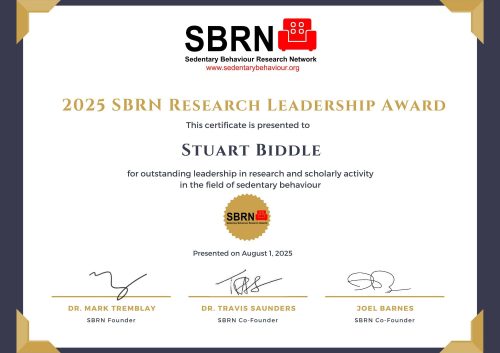
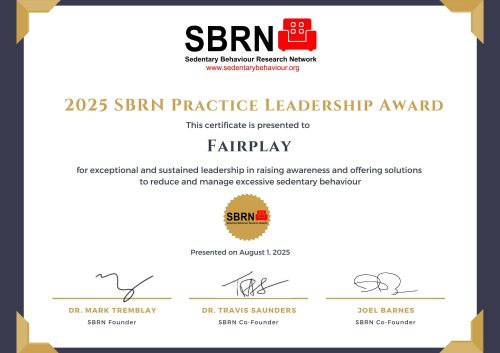
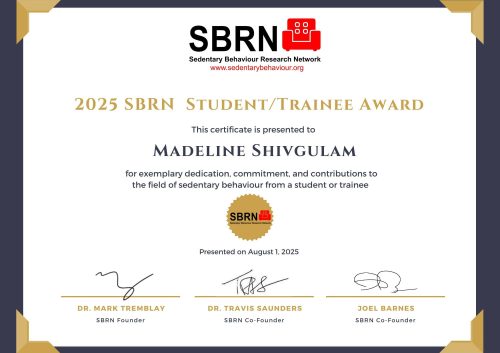
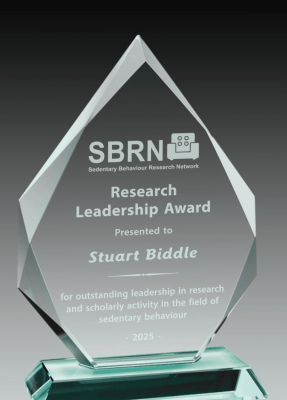
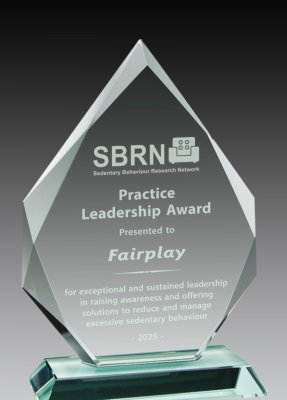
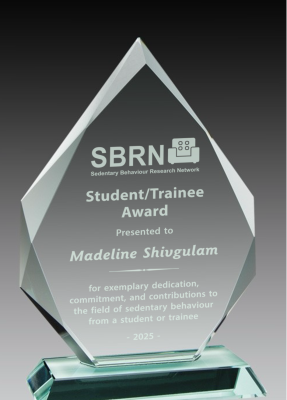
2024
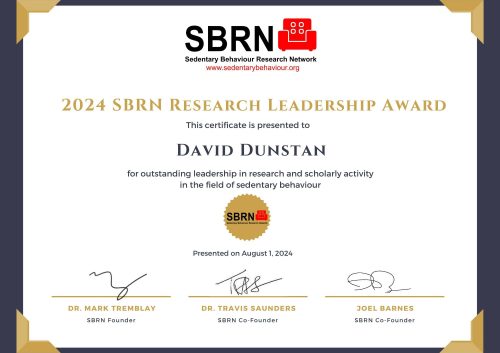
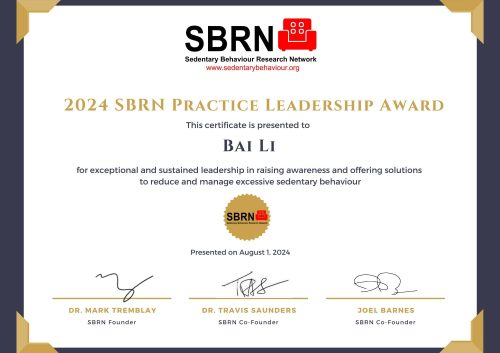
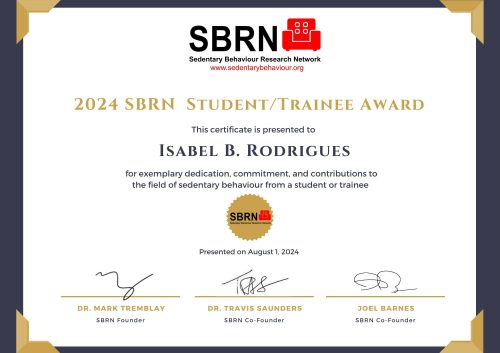
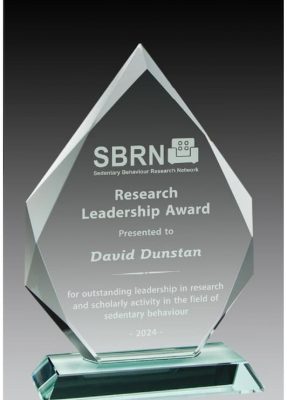
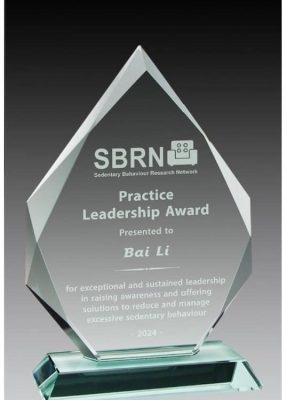
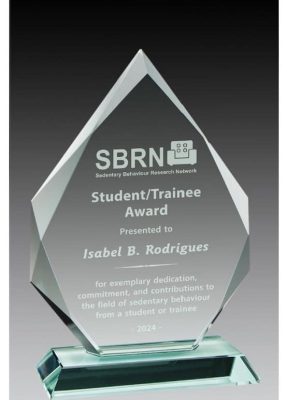
2023
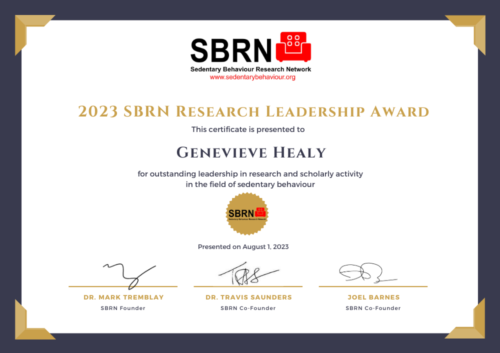
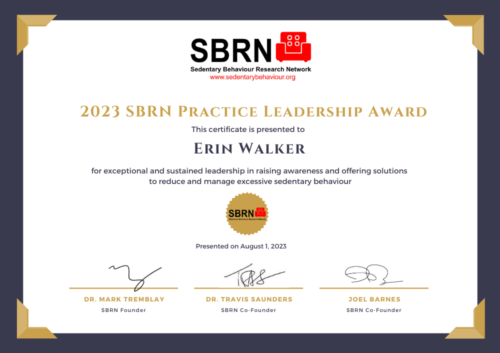
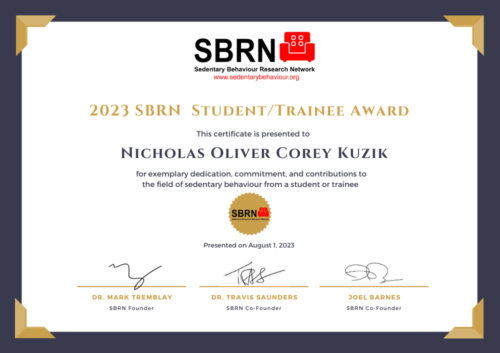

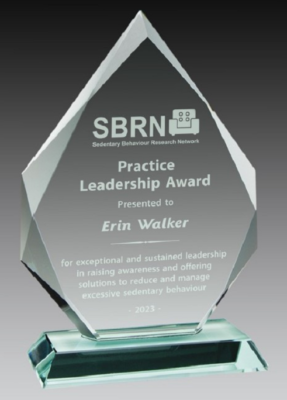
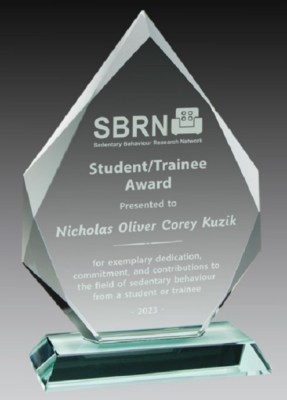
2022
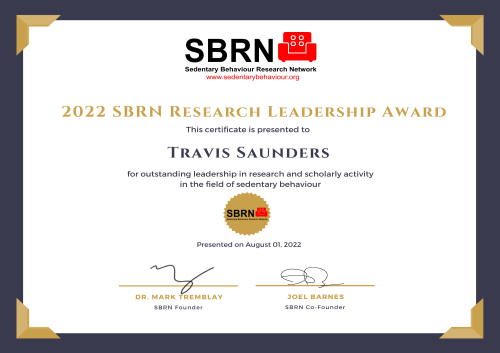
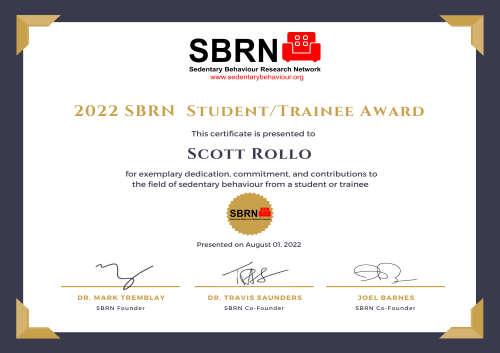
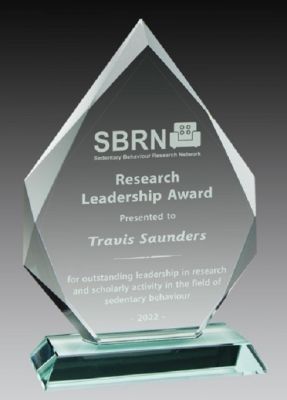
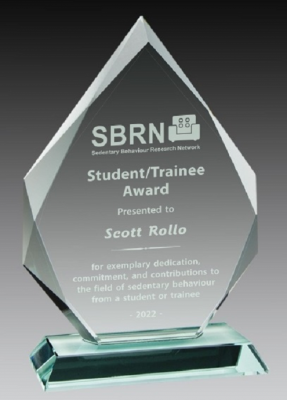
2021
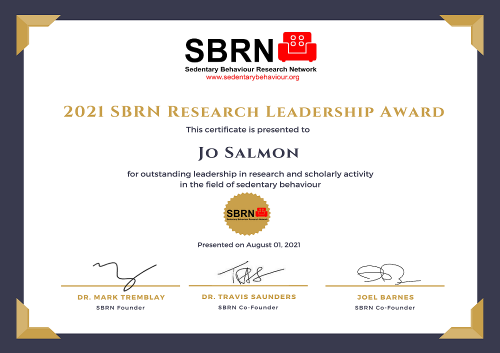
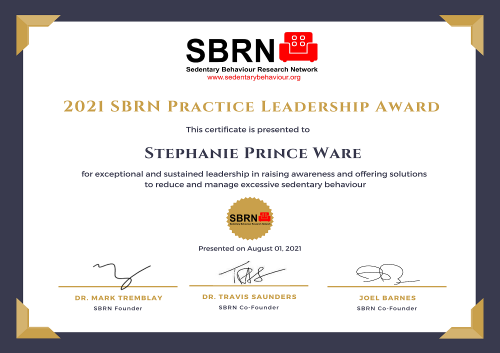
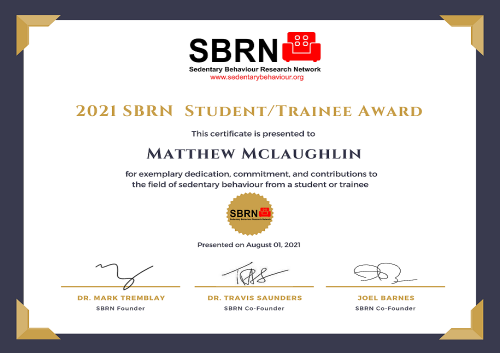
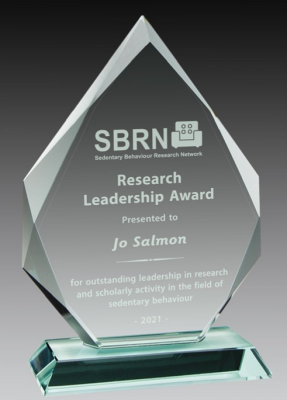
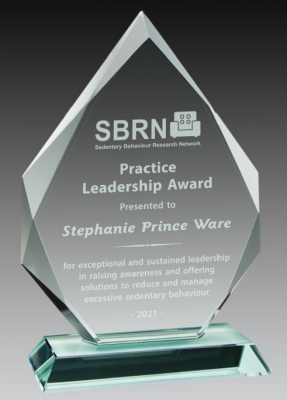
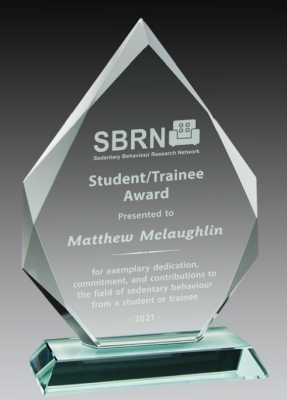
2020
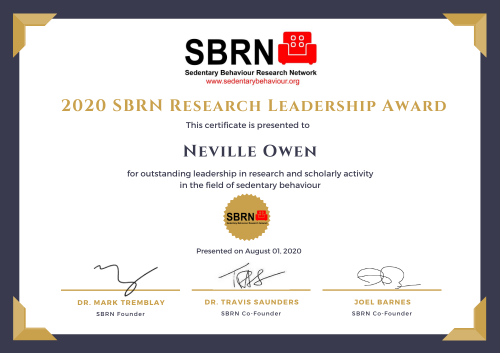
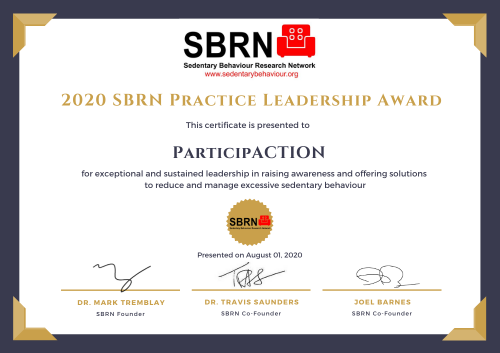
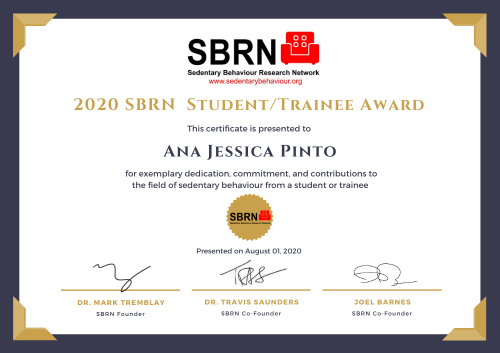

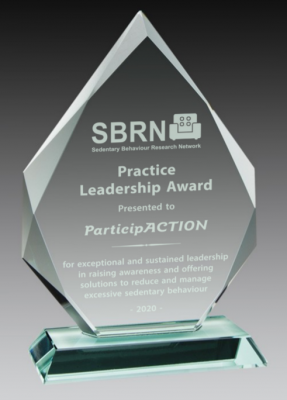
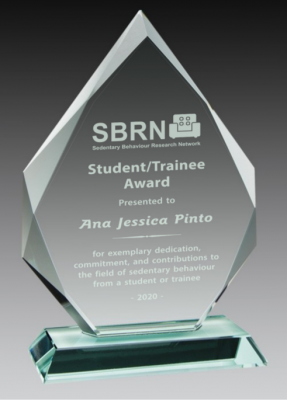
Interested in nominating your colleague for a 2024 SBRN Award?
Members of SBRN can nominate candidates using the nomination form. Nominations can be submitted at any time but must be received no later than July 1st, 2024.
